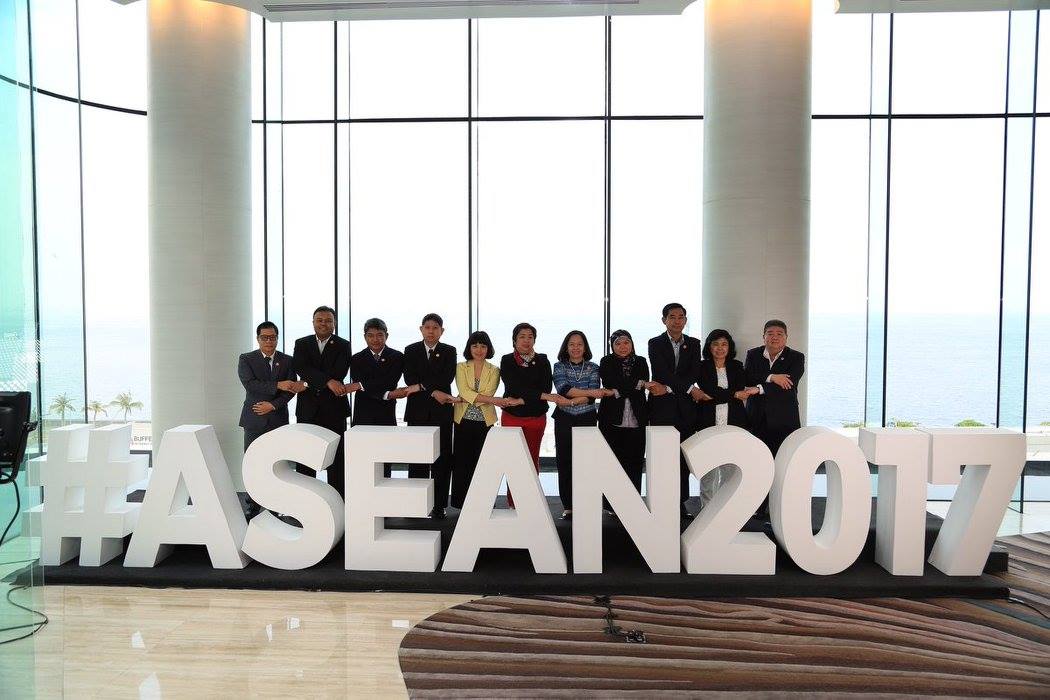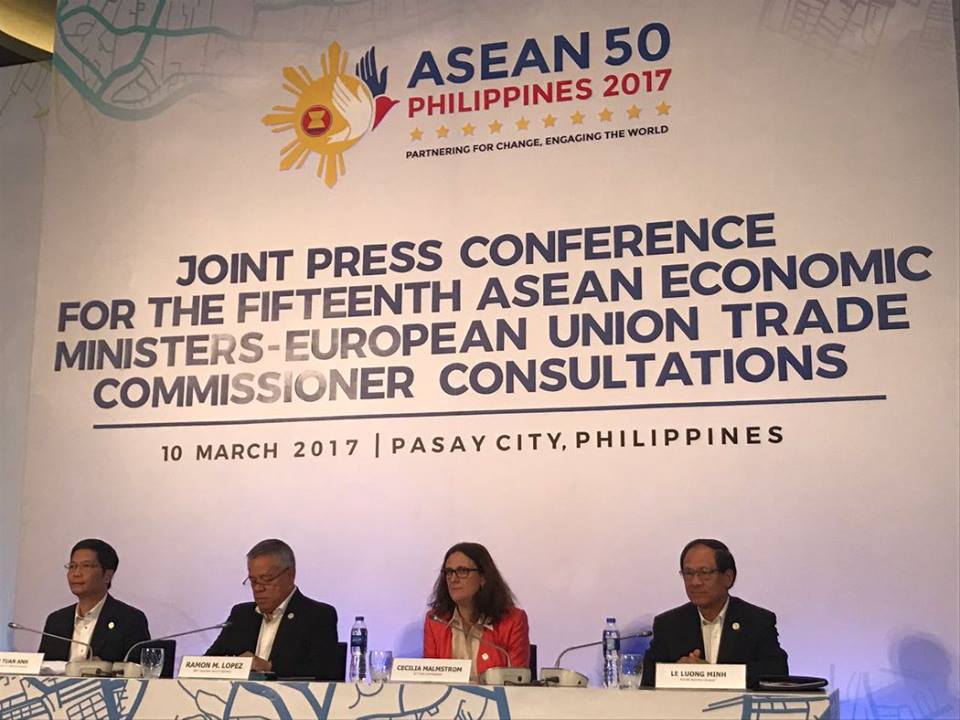
PARAÑAQUE CITY, March 11 (PIA) — The Philippines successfully advocated its trade priorities in ASEAN as the country’s hosting of the ASEAN Economic Ministers’ Meeting (AEM) Retreat and Related Meetings ended on March 10.
The Department of Trade and Industry led by Secretary Ramon Lopez secured endorsements from ASEAN Economic Ministers on the timely realization of Philippine priority deliverables for 2017.
“Aside from championing our trade agenda as a country, we are also able to advance the economic agenda of our fellow ASEAN Member States (AMS); thus bringing our domestic interest to the Regional platform,” said Sec. Lopez, who chaired the AEM Retreat and Related Meetings, adding that AMS’ endorsements will strengthen the implementation of the ASEAN Economic Community (AEC) Blueprint 2025.
“The Philippines is taking the lead in seeking new policy interventions that are expected to contribute towards helping MSMEs harness the opportunities presented by open and increasingly integrated markets,” Sec. Lopez said.
A self-certification scheme for Micro, Small and Medium Enterprises (MSMEs) will allow the sector to partake in the benefits of the free trade agreements, while action agenda on investment, inclusive business and women and youth entrepreneurship will strengthen the investment linkages between MSMEs and Multinational Enterprises (MNEs), a thrust that Sec. Lopez has been pushing in the domestic front to foster inclusive development towards shared prosperity.
Aligned with the inclusive growth agenda is the endorsement of the ASEAN Declaration on Innovaton, which advocates for an enabling ecosystem that supports entrepreneurial activities in technology and innovation.
“Inclusive business will allow companies to engage the poor and low-income communities as partners, customers, suppliers, and employees in their supply chains because it makes good business sense,” DTI Undersecretary Ceferino Rodolfo said.
The AEM Retreat also touched on the launching of the Davao-General Santos-Bitung route of the ASEAN Roll-on Roll-off (RORO) Network, a system that will both enhance intra-regional connectivity and bolster socio-economic growth in the regions.
On the services sector, the endorsement of the ASEAN Trade in Services Agreement (ATISA) means fostering a more transparent trade in services, boosting further contribution and competitiveness of the services sectors in ASEAN.
The meeting also explored on convening regular dialogue with the private sector to highlight its business priorities and recommendations, as well as identify ways to complement existing public efforts toward taking full advantage of opportunities under the AEC.
“Public-private sector engagement not only reduces the gap of understanding of the private sector and the general public on ASEAN, it also promotes intra-ASEAN and global trade and investment and reduces current and future impediments faced by business enterprises,” Sec. Lopez said.

The AEM Retreat also discussed the preparations for the 50th anniversary of the ASEAN, which coincides with the Philippines’ ASEAN chairmanship.
An equally relevant element of this chairmanship is the push to achieve considerable progress on the Regional Comprehensive Economic Partnership (RCEP), showcasing ASEAN’s headship in bringing about a regional partnership that integrates major economic players China, Japan, India, Korea, Australia and New Zealand.
The shared optimism on RCEP will mean more foreign investments and more dynamic trdae and business alliances.
As noted by DTI, RCEP will expand ASEAN market of 600 million to 3.5 billion as it will include ASEAN’s six Dialogue Partners, that accounts for almost half of the world’s population, representing a huge integrated market base.
This expanded economic partnership is seen to shape the future of trade and economic liberalization in Asia.
At the backdrop of recent economic uncertainties and rising protectionism, RCEP is poised to keep the momentum of trade as an engine for regional and global economic growth.
“The chairmanship is an event to strengthen the enduring ties that bind us all and an important occasion to reaffirm the shared aspirations and values which will lead us to our envisioned integration come 2025,” Usec. Rodolfo said. (DTI/RJB/SDL/PIA-NCR)







